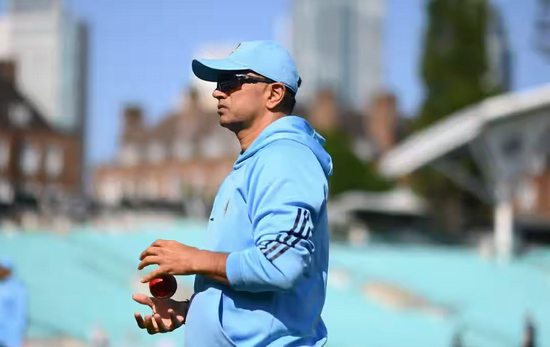Is it the right time to address the elephant in the room? Or shall we wait for another lost opportunity at an ICC tournament to start talking about it?
Since last winning an ICC trophy in 2013 – at a time when Facebook had seen its peak, Twitter was emerging to become a social media giant, and Instagram was probably in the earlier stages of being launched, the Indian team failed to bring home any major accolades.
So, where is the problem? It’s not that they are missing world-class players or lack infrastructure, or don’t have a setup where youngsters thrive to succeed. Is it luck? Could be, but not entirely! So where does one find an answer to this?
Maybe it’s in front of everyone’s eyes, and the Indian cricket fans are happy living in denial. Can happen! The big question here arises what’s stopping the Indian Men’s Team from winning an ICC trophy?
Having lately lost the second straight World Test Championship (WTC) Final, this time to Australia by a massive margin of 209 runs, the Indian players, let alone the fans, looked disappointed with the result and seemed eager to find solutions. With India all set to host the 50-over World Cup later this year, they would want to tick most of the boxes to avoid suffering the same fate as they did during the previous editions.
Is the way how Test Cricket unfolds in India a problem?
Maybe no one’s ready for this discussion.
How does wrapping up Test matches in India inside two, three or on the least doctored track, four days, help players across all departments, other than spinners, in any way? Honestly, they are not!
Providing tracks that turn from day one will neither help the batters gain any momentum nor will it see fast bowlers succeeding in Tests in this part of the world. Leave aside the touring sides, it’s a rarity to see more than two Indian pacers taking the field in any Test in these conditions – even considering the venues where they would get some assistance from the pitch.
Now, with spinners taking control of the game from the ball, thus dictating how things will pan out throughout the series, it doesn’t really help the team in the longer run.
India might, and well, have been doing this for the past ten years, to win all those Tests at home, and some even by daunting margins. But the truth is that such tactics are not helping other departments to get better in any way.
It’s understandable, for obvious reasons, why host teams tend to use the home advantage in their favour – which is to win matches and gain a lead on the points table of the WTC Cycle. But what’s the use of that if the same bunch of players were to suffer the old, monotonous fate of falling shy of winning the trophy outside of their home conditions?
India’s past two results in the WTC Finals are prime examples of that.
With the batters failing to score in home conditions, and for countless reasons, not being able to go outside of their bubble and train or play in different domestic leagues, in the County Championships in the UK, for example, their inability to adapt to the new conditions get exposed on the D-day.
Is high-headedness killing, or has already killed Indian cricket?
India doesn’t have big-name players in the country, India has demigods – be it the great Sachin Tendulkar, Kapil Dev, MS Dhoni and so on. With the amount of love they get from the fans, they are no less than supreme powers on the field in their head, and it has had its adverse effects.
Though a few of the big names in the India line-up have contributed immensely throughout their career, their stubbornness not to learn from their mistakes has shockingly cost India World Cups at a stretch. What’s worse, they keep getting away every single time.
The least discussed or untouched, like some taboo, in this country, the egos are now starting to take centre stage. Sure, it’s all part of the game and must have been around for hundreds of years now, but this thing has had its impact on the team environment and subsequently on the results.
Can India revive?
They must before it gets too late.
In a few months, the World Cup starts, and this is India’s best chance at glory, having last won in Asia 12 years back.
Sticking around as a team, working on the weaknesses, and deliberately putting in hard yards to prepare for the worst situation can only help India get ready for the biggest winter extravaganza this year.
Before the World Cup gets underway, India will get involved in another multi-team tournament – the Asia Cup 2023, and winning that would boost the side’s chances of ending the trophy drought in the home WC.
“You can now write for motabooknews.com and be a part of the Motabooknews. Share your stories and opinions with us here.




